
an imprint at Prometheus Books
Amherst, NY
Published 2009 by Pyr, an imprint of Prometheus Books Always Forever. Copyright 2009 by Mark Chadbourn. All rights reserved. No part of this publication may be reproduced, stored in a retrieval system, or transmitted in any form or by any means, digital, electronic, mechanical, photocopying, recording, or otherwise, or conveyed via the Internet or a Web site without prior written permission of the publisher, except in the case of brief quotations embodied in critical articles and reviews.
Inquiries should be addressed to
Pyr
59 John Glenn Drive Amherst, New York 14228-2119 VOICE: 716-691-0133, ext. 210 FAX: 716-691-0137 WWW.PYRSF.COM
13 12 11 10 09 5 4 3 2 1
Library of Congress Cataloging-in-Publication Data
Chadbourn, Mark.
Always forever by Mark Chadbourn. p. cm. - (The age of misrule ; bk. 3) First published: London : Gollancz, an imprint of Orion Publishing Group, 2001. ISBN 978-1-59102-741-6 (pbk. : alk. paper) 1. Title.
PR6053.H23A79 2009 823'.914-dc22 2009013236 Printed in the United States on acid-free paper
contents
All The news
by Max Michaels
 e're a cynical race. With remarkable ease we manage to find the worst in everyone we meet. Charity workers selflessly slave amongst the poor in a disease-ridden quarter of some stinking tropical city. They get spotted kicking a dog or yelling at some unfortunate on a bad day that has somehow surpassed all the other bad days and instantly we're tearing them apart for being less than worthy. Where does that come from? Is it some kind of repressive religious thing slammed into us during schooling, where everyone is a sinner unless they're a saint? Look around-the world out there is a nightmare; the same as before, I suppose, only different. It's a struggle for anyone to get through it, but we carry on, trying to do the best we can under the circumstances. We're all deeply flawed-that's our nature. But if we fight to overcome those flaws, surely that's worth some praise, isn't it? The only time to make any judgment-and maybe not even then-is at the end of someone's life, when you can stand and look back, weighing all the good things and the bad things and the overwhelming majority of thoroughly mundane things, and decide whether it was a life well lived. Let me tell you now, you won't find many saints. I bet you won't find any at all. But you will find a preponderance of fundamentally good people striving to be the best they can. And isn't that the kind of thing we should be celebrating: not that someone is good, but that they're fighting to be better.
e're a cynical race. With remarkable ease we manage to find the worst in everyone we meet. Charity workers selflessly slave amongst the poor in a disease-ridden quarter of some stinking tropical city. They get spotted kicking a dog or yelling at some unfortunate on a bad day that has somehow surpassed all the other bad days and instantly we're tearing them apart for being less than worthy. Where does that come from? Is it some kind of repressive religious thing slammed into us during schooling, where everyone is a sinner unless they're a saint? Look around-the world out there is a nightmare; the same as before, I suppose, only different. It's a struggle for anyone to get through it, but we carry on, trying to do the best we can under the circumstances. We're all deeply flawed-that's our nature. But if we fight to overcome those flaws, surely that's worth some praise, isn't it? The only time to make any judgment-and maybe not even then-is at the end of someone's life, when you can stand and look back, weighing all the good things and the bad things and the overwhelming majority of thoroughly mundane things, and decide whether it was a life well lived. Let me tell you now, you won't find many saints. I bet you won't find any at all. But you will find a preponderance of fundamentally good people striving to be the best they can. And isn't that the kind of thing we should be celebrating: not that someone is good, but that they're fighting to be better.
So let's talk about heroes.
The worst always brings out the best in people when they're pushed to the edge and find reserves they never realized existed in their day-to-day lives. And these are, indeed, the worst of times, so it's hardly surprising that in the midst of them we found the best of heroes. Just normal folk, like you and me, with the usual bundle of neuroses and weaknesses, but they've proved themselves to be champions. (Excuse the gushing language: it's not modern, and it's not British, and it's not cynical. But then, that's the point I'm making.) I'm writing this so the record of their deeds is preserved to inspire future generations. Is that a pretentious hope? I don't know, but it's important to me that I do it.
If you'd met them on the street in the time before the Big Change, you probably wouldn't have given them the time of day. Jack Churchill, Church to his friends, was moody and introspective, driven to the edge of despair by the suicide of his girlfriend, Marianne, two years earlier. That act had thrown his entire life off course. He'd been an archaeologist and a writer with massive potential, but he ended up going nowhere, losing his friends, his hope. Ruth Gallagher was a lawyer for some big-shot firm-sharply intelligent, as you would expect, but a little repressed, with a problem finding any relationship to match her exacting standards. Although she'd achieved a great deal for someone in her late twenties, she didn't feel fulfilled. She'd only taken on her career to please her beloved father, who'd died of a heart attack after learning his brother had been murdered in a bungled building society robbery. Laura DuSantiago was probably the most complex and misunderstood of all of them. By all counts, she was a sociopath and misanthrope with a past blighted by drugs and petty crime. Her acid tongue and sarcastic manner made it almost impossible to like her. At the same time she was brilliant with technology, and once you broke through the unpleasant exterior you found reasons for her attitude and the constant confusion that obscured her true nature: as a child she'd been to hell and back at the hands of a mother who used religious obsession to mask her growing psychoses; Laura's body and mind were left scarred in the process. And in a struggle with her mother in the family home she had woken from unconsciousness to find her mother dead, seemingly by Laura's hand.
Shavi-no one ever found out his full name-was certainly the most well balanced of the five. An Asian who grew up in a strictly Muslim family, he was eventually cut off by his father when he refused to accept his religion and traditional ways. A lifetime of searching followed, during which Shavi dabbled in every religion and explored every occult and New Age byway. It left him a deeply philosophical and spiritual man, and the solid moral core of the group. He was a neo-hippie, enjoying his mind-expanding drugs, espousing free love with men or women. Like the others, however, there was a darkness in his life. As he left a London gay club with his boyfriend, Lee, he was attacked by someone he couldn't identify in the dark. Lee was brutally murdered.
And then there was Ryan Veitch, a hard-bodied, hard-minded thug who grew up in a South London family of petty criminals. His childhood had been troubled by vivid dreams that he'd only been able to exorcise by having their images tattooed on his body. His mother died when he was young, leaving him and his brothers to make up for a father so traumatized by his wife's death he was unable to keep a job and barely able to hold the family together. It was hardly surprising that he viewed crime as the only option to survive. But then the young Witches made the mistake of bungling a building society robbery. In the confusion Ryan fired his shotgun and an innocent man died-Ruth's uncle, one of the many

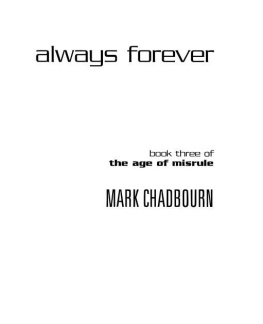
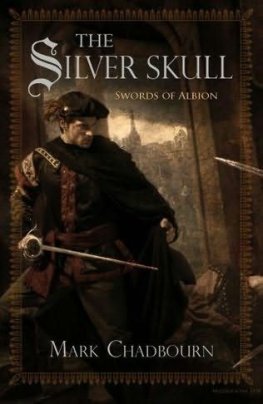
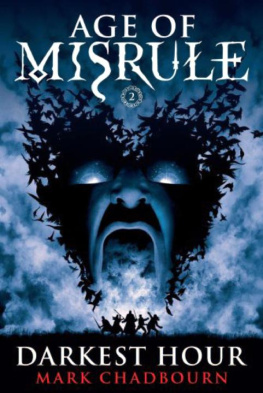
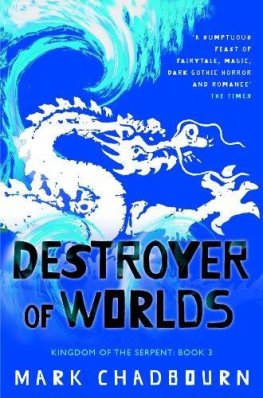
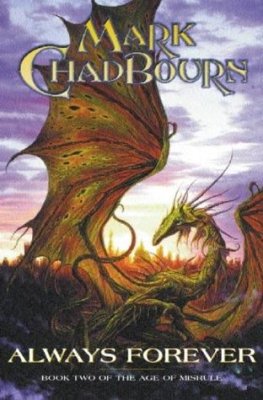

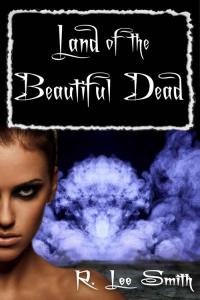
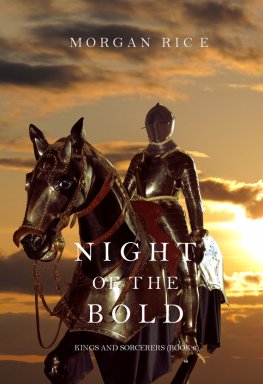


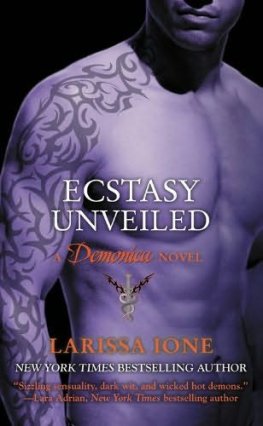


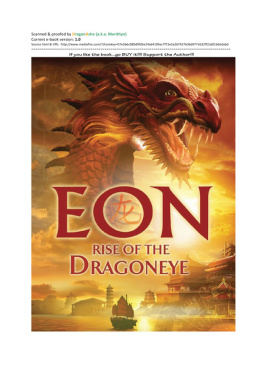
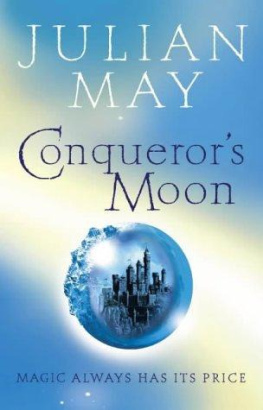
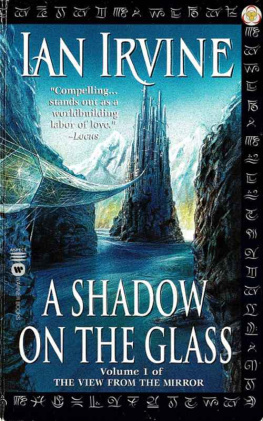





 e're a cynical race. With remarkable ease we manage to find the worst in everyone we meet. Charity workers selflessly slave amongst the poor in a disease-ridden quarter of some stinking tropical city. They get spotted kicking a dog or yelling at some unfortunate on a bad day that has somehow surpassed all the other bad days and instantly we're tearing them apart for being less than worthy. Where does that come from? Is it some kind of repressive religious thing slammed into us during schooling, where everyone is a sinner unless they're a saint? Look around-the world out there is a nightmare; the same as before, I suppose, only different. It's a struggle for anyone to get through it, but we carry on, trying to do the best we can under the circumstances. We're all deeply flawed-that's our nature. But if we fight to overcome those flaws, surely that's worth some praise, isn't it? The only time to make any judgment-and maybe not even then-is at the end of someone's life, when you can stand and look back, weighing all the good things and the bad things and the overwhelming majority of thoroughly mundane things, and decide whether it was a life well lived. Let me tell you now, you won't find many saints. I bet you won't find any at all. But you will find a preponderance of fundamentally good people striving to be the best they can. And isn't that the kind of thing we should be celebrating: not that someone is good, but that they're fighting to be better.
e're a cynical race. With remarkable ease we manage to find the worst in everyone we meet. Charity workers selflessly slave amongst the poor in a disease-ridden quarter of some stinking tropical city. They get spotted kicking a dog or yelling at some unfortunate on a bad day that has somehow surpassed all the other bad days and instantly we're tearing them apart for being less than worthy. Where does that come from? Is it some kind of repressive religious thing slammed into us during schooling, where everyone is a sinner unless they're a saint? Look around-the world out there is a nightmare; the same as before, I suppose, only different. It's a struggle for anyone to get through it, but we carry on, trying to do the best we can under the circumstances. We're all deeply flawed-that's our nature. But if we fight to overcome those flaws, surely that's worth some praise, isn't it? The only time to make any judgment-and maybe not even then-is at the end of someone's life, when you can stand and look back, weighing all the good things and the bad things and the overwhelming majority of thoroughly mundane things, and decide whether it was a life well lived. Let me tell you now, you won't find many saints. I bet you won't find any at all. But you will find a preponderance of fundamentally good people striving to be the best they can. And isn't that the kind of thing we should be celebrating: not that someone is good, but that they're fighting to be better.